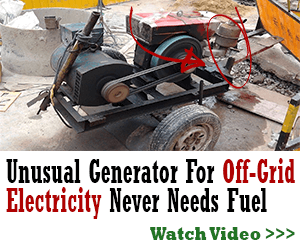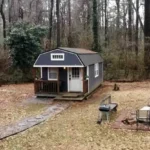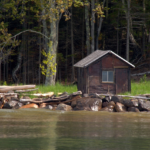
Are you tired of being tied up to the utility grid? Maybe you’re looking for a more self-sufficient lifestyle, or you want to reduce your carbon footprint? Whatever your reasons, off-grid living is a great way to minimize your dependence on external utilities, reduce your environmental impact, and take control of your life. But transitioning to off-grid living comes with its own set of challenges. Here are some off grid living essentials as tips to make your off-grid journey stress-free and fulfilling.
1. Choose the Right Location
When planning to start living off-grid, the location of your home is most important. Whether you’re building a tiny house, or purchasing already existing land, make sure the terrain is suitable for your needs.
Consider factors like accessibility, land size, vegetation, water sources, and the climate. Remember, the goal is to have a sustainable lifestyle, so you must choose a location that allows you to grow your food, have access to clean water, and harness renewable energy sources.
2. Plan Your Power System
When living off-grid, your main source of energy will normally be solar power. Having a reliable solar system gives you control over your energy consumption, so you won’t run out of energy at the most inconvenient times.
Installing solar panels may be expensive upfront, but it’s a long-term investment, and you won’t have to worry about utility bills ever again. You’ll need a battery bank to store excess power during the day and use it at night. Ensure that your system is appropriately sized to keep up with your energy demands.
3. Water Collection and Purification ( The Most Important Off-Grid Living Essential )
Depending on where you live, water sources for off-grid living can be a challenge. To be sustainable, you must collect and purify water for consumption by installing a rainwater harvesting system that directs the water to a filtration system. You may also construct a well or purchase scheme water if there’s no rain or surface water available. Always ensure that you have enough water storage for emergencies.
4. Composting Toilet
When living off-grid, you won’t have access to city sewer systems. Therefore, a composting toilet is a great solution that doesn’t require water and has no odors. This will help you save water and conserve the environment by generating compost. Composting toilets are a low technology solution to waste management, and it’s easy to maintain.
5. Waste Management
Living off-grid requires you to be mindful of your waste production. It’s crucial to reuse, recycle, and compost as much as possible. You can reuse grey water for flushing your toilet, watering your garden, or washing vehicles. Incorporate composting in your lifestyle by composting food waste and other organic materials. This reduces your waste production while improving soil fertility.
In conclusion, off-grid living isn’t a daunting task if you’re well prepared. Living off-grid allows for self-sufficiency and a sustainable lifestyle without outside utilities. Consider these off grid living essential tips for successful off-grid living. These tips are just a start to get you thinking about this challenge. Future posts from us will delve much deeper into these topics..Stay tuned.








1 thought on “Off-Grid Living Essentials, Are You Up To The Challenge?”